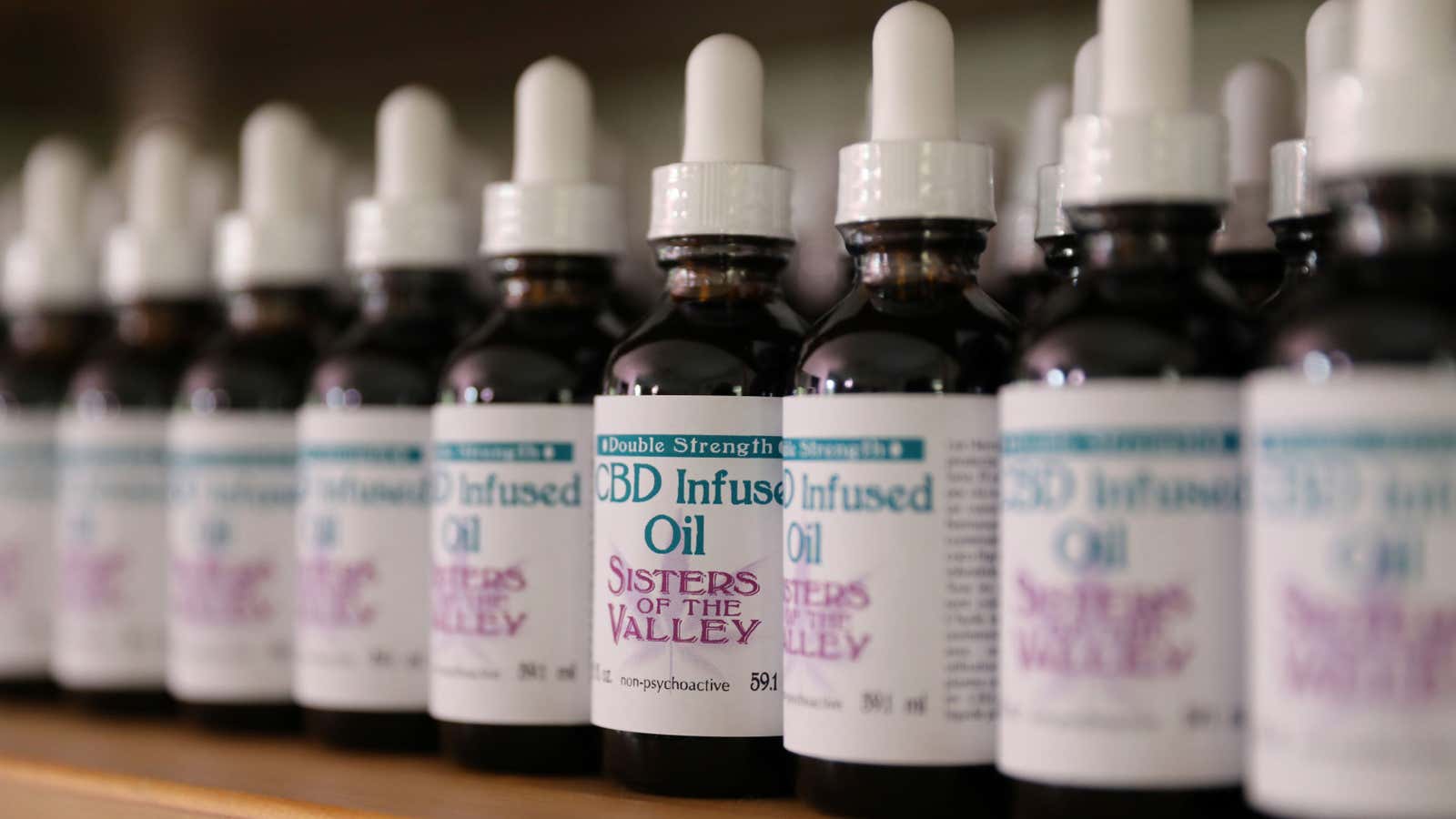The legal cloudiness in the US surrounding cannabidiol (CBD)—the cannabis-derived compound that’s enjoying enormous popularity for its apparent abilities to ease ailments from insomnia and anxiety to back pain and premenstrual syndrome—is slowly starting to clear.
“CBD now is too big to fail,” said Jonathan Miller, general counsel for the US Hemp Roundtable, an industry trade group. And federal agencies are getting on board.
Donald Trump’s signing of the new farm bill on Dec. 20 was largely heralded as a victory for producers of hemp and products containing hemp-derived CBD. It removed CBD from Schedule I of the Controlled Substances Act (classified as dangerous and of no medical use) and clarified its status as an agricultural product. This makes benefits such as crop insurance available to hemp farmers.
The same day of the bill’s passage, Food and Drug Administration commissioner Scott Gottlieb issued a statement reminding Americans that it preserved the FDA’s purview over food, drugs, cosmetics, and dietary supplements containing hemp-derived CBD, and announced the FDA’s intentions to regulate them. Of particular concern, Gottlieb noted, are companies making unsubstantiated medical claims about CBD’s abilities to treat diseases such as cancer and diabetes.
Some perceived the statement as casting a shadow of doubt over hemp supporters’ celebrations. Yet Miller told Quartz he sees it as good news.
The first half of the letter, he said, only reiterated what the FDA has been saying for years: CBD cannot be marketed as a food ingredient. If you’re puzzled by the abundance of CBD lattes advertised on New York City sidewalks or CBD-infused cocktails on California menus, consider that the FDA has never sent a letter enforcing that rule and instead focused on companies mislabeling products and making false medical claims.
“We agree with that approach,” said Miller. “We want the FDA to be going after the bad guys in the industry who don’t want to play by the rules…The problem our industry has—and is going to have—is with people in our industry that make false claims and that sell products that aren’t what they say they are.”
Indeed, a backlash has already begun against egregious cure-all claims regarding CBD. A tweet satirizing CBD enthusiasts’ embrace of the substance as a panacea went viral this week:
The real cause for optimism, Miller said, was in the second half of the FDA’s letter, which stated the agency’s intentions to hold public meetings and create a framework for federally regulating CBD products.
“We see a path in the very near future that the FDA will be formally approving of these products to be sold alongside the vitamin C’s and D’s and melatonins of the world,” said Miller.
